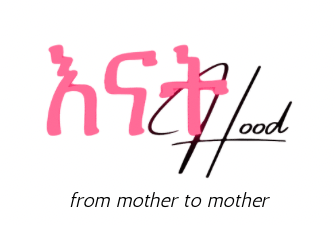
Even though people do not entirely deny the benefits of breastfeeding, I have been challenged by some people on many occasions that I need to supplement my baby with a formula. They think breastfeeding is not enough for the baby’s growth.
Let’s unpack what science has to say about the amazing benefits of breastfeeding for the baby. And I will also share the benefits I have seen on my baby so far.
It is obvious everyone needs good food. But it is even more important for babies and children because they need good nutrition to grow and develop properly.
Breast Milk is More than Nutrition.
Breast milk is rich in both its nutritional composition and in the non-nutritive bioactive factors that promote survival and healthy development (source).
In addition, it helps to protect babies from getting sick. It gives comfort and strengthens the bond between mom and a baby.
The benefits of breastfeeding are well acknowledged by the American Academy of Pediatrics (AAP) and the World Health Organization (WHO).
Both AAP and WHO recommend early initiation of breastfeeding within 1 hour after birth, exclusive breastfeeding (feed only breastmilk, no formula, water, juice, or food) for six months. And continue breastfeeding at least for one year or as much as possible.
A lot of studies are emerging and confirming breastfeeding benefits. Let’s see them one by one:
Breastfeeding Benefit for The Baby
Colostrum will boost the baby’s immune system.
Colostrum is the first food for your baby. For the first few days after birth (2-5 days), your breasts produce only colostrum. It contains a large number of antibodies that helps to build the immune system. (source)
It is a natural vaccine you could give to your baby early on.
Also, colostrum helps the baby poop because colostrum has a laxative effect. Especially the first sticky black tar-like poop called meconium, which the baby stores since before birth.
Plus, it lowers the chance of jaundice, a condition where the baby’s skin and eyes turn yellow.
Breast milk is perfectly designed, complete food, and changes regularly to meet the baby’s nutritional needs.
Breast milk contains what the baby needs to grow, from protein, fat, carb, and water to hormones, prebiotics, and antibodies.
The surprising fact is that breast milk components change as the baby grows.
Can you believe it? The breast milk produced for a premature baby is higher in protein and calories than milk made for a full-term baby, to give the tiny baby what it needs to catch up on growth.
In cold climates, breast milk contains more fat, whereas in warmer temperatures, more water. If your baby is hungry, he nurses more strongly and receives more fatty hindmilk. While just thirsty, he feeds more leisurely and receives lower-calorie milk. Isn’t it incredible how our body works?
Human milk is biologically specific for human babies
Like other mammals, milk is specific to their babies; breast milk is specific for human babies.
For example, cow’s milk is high in protein, minerals, and growth hormone because the baby calf should be up and running within hours after birth. Muscle and bone growth is essential for their survival.
Whereas for humans, the brain is our survival organ. Human milk is high in essential nutrients that promote the growth and development of the brain.
I believe that’s why a study shows breastfed babies tend to score high in IQ tests.
Breastfed babies have no or fewer ear infections, colds, diarrhea, and constipation.
This study shows just one month of breastfeeding reduces the chance of ear infections by 4%, and six months of breastfeeding reduces ear infections by 17%.
Also, according to this study, breastfeeding reduces the severity of colds.
Here let me share my experience as evidence.
Our baby has been breastfeeding for more than a year now; he never had any kind of infections, colds, diarrhea, or constipation.
As a result we never ran to the emergency room. He never need to take antibiotics despite letting him play on the ground and the environmental change he faced when we traveled to Ethiopia when he was only ten months old.
Breastfeeding reduces the risk of developing obesity and diabetes later in life.
Babies who are breastfed less likely to develop obesity and diabetes later in their life. (source)
On top of the formula being artificial milk, the breast milk flow is pretty much controlled by the baby suckling. Therefore the baby learn to stop when satisfied. Whereas the bottle has an easy flow, making the baby lose control of consumption results in enlarging the baby’s stomach.
Minimizes the risk of sudden infant death syndrome (SIDS)
Study shows SIDS reduced by half in breastfed babies in the first two months.
Breastfeeding promotes bonding.
When a baby breastfeeds, the skin-to-skin contact builds trust and love between the baby and the mother.
This study shows breastfed babies less likely to internalize problems and suffer from depression later in life.
It is not to imply in any way that mothers can’t bond with their bottle-fed babies. Instead it is to show a unique closeness between a mother and her nursing child as breastfeeding is not only feeding but also very comforting for the baby.

Finally, I would love to say that I am not here to judge or shame mothers who decided to feed formula for their babies as I don’t like to be judged or shamed by my choice to breastfeed.
I completely understand that it is a personal choice. I know it can even be a medical need to feed formula. May be there is a challenge of breast milk supply as well.
This is purely for information purposes. I hope it gives you something to think about if you are trying to decide whether or not to breastfeed your baby. Or if you’re already breastfeeding and wondering about its benefits. Additionally, if you want to get all the tips about breastfeeding, read this blog post.
I hope you find the information helpful. Do you breastfeed like me? What are the benefits you have seen on your baby? Let me know in the comment below.
Source:
- TexasWIC.org
- https://www.healthychildren.org/English/ages-stages/baby/breastfeeding/Pages/default.aspx
- https://www.who.int/news-room/fact-sheets/detail/infant-and-young-child-feeding
- https://www.ncbi.nlm.nih.gov/pmc/articles/PMC3586783/
- https://pubmed.ncbi.nlm.nih.gov/6798576/
- https://jamanetwork.com/journals/jamapsychiatry/fullarticle/482695
- https://www.sciencedaily.com/releases/2016/05/160524123440.htm
- https://www.aap.org/en-us/professional-resources/Research/Pages/Breastfeeding-Fully-for-6-Months-vs-4-Months-Decreases-Risk-of-Respiratory-Tract-Infection.aspx
- https://www.ncbi.nlm.nih.gov/pmc/articles/PMC4374721/
- https://pediatrics.aappublications.org/content/123/3/e406
- https://www.ncbi.nlm.nih.gov/pmc/articles/PMC3916850/


Haniye this is really educational keep doing what you are doing!!!
Thank you, Miri.
More content about motherhood, and baby care are coming, keep coming to EnatHood blog 🙂
What an informative article Hanniyee. This is the topic I love to talk about when I meet soon to be moms. I share my breastfeeding journey with them.Breastfeeding was the best decision I made when I had my daughter. I enjoyed every moment of it☺️
Oh Thank you Hiwi.
You’re one advocate of breastfeeding. Keep spreading the amazing benefits of breastfeeding!!
I love breastfeeding and I am so grateful I able to breastfeed my son too.
Thank you so much dear ❤️
You’re welcome Rahwa.
I am glad you like the content.